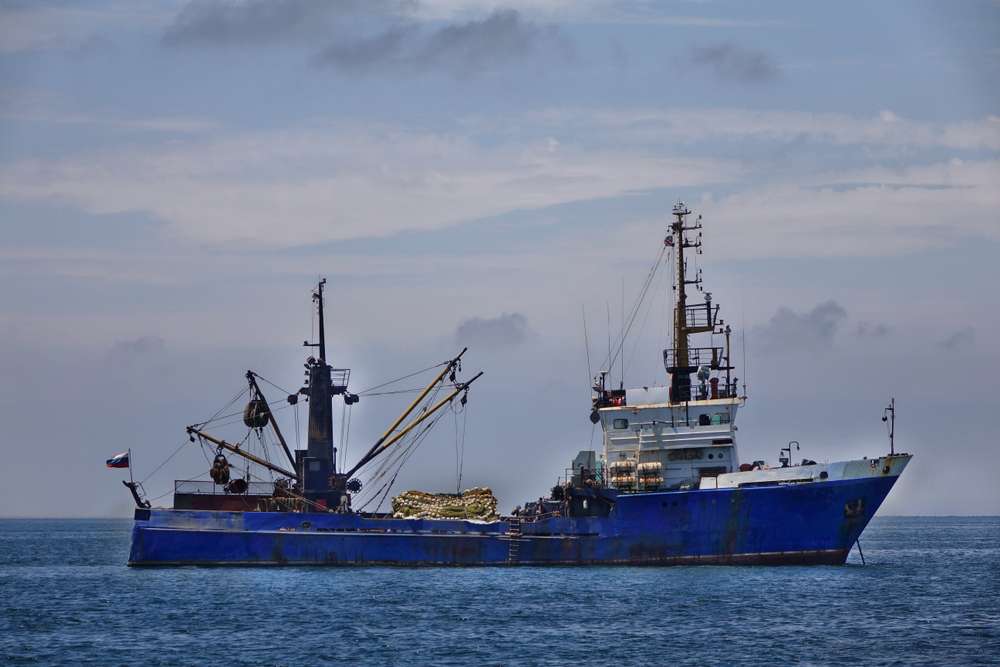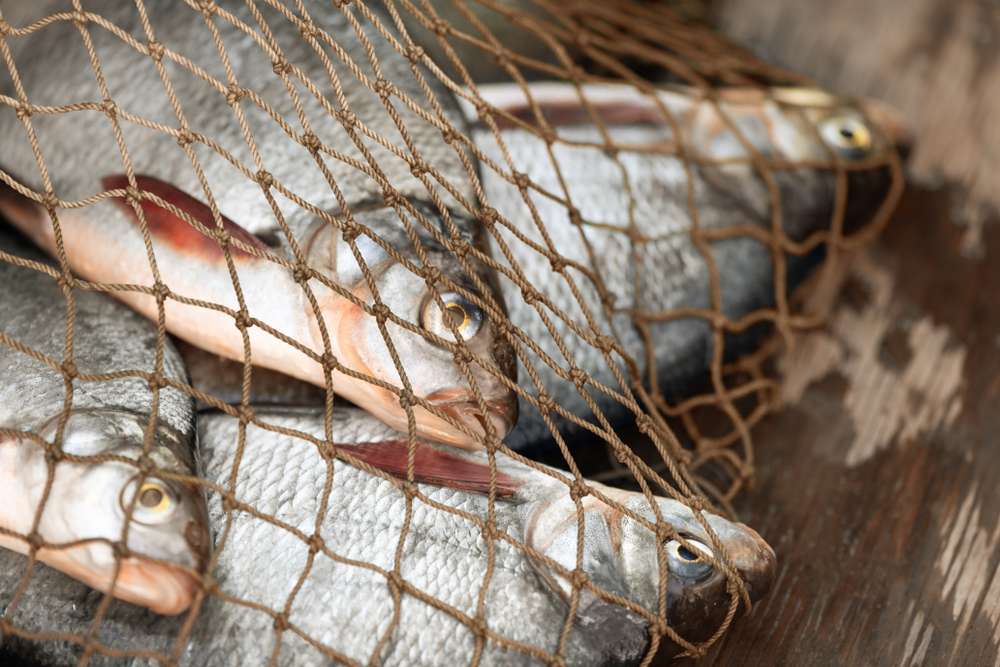Illegal, Unreported and Unregulated (IUU) fishing is one of the biggest issues in the global seafood trade, posing a significant threat to the sustainability of global fisheries and marine ecosystems, as well as being widely associated with human rights abuses across the seafood supply chain.
IUU fishing activities include those conducted without proper authorisation, those not reported to the relevant authorities, or those that are in violation of the law and regulations. The extent of IUU fishing – and the horrific implications of the actions of the worst operators in the seafood supply chain – has made front page news on several occasions during the last decade.
While monitoring distant water fishing fleets is notoriously difficult, progress has been made in terms of efforts to combat IUU fishing through the development and implementation of guidelines and regulations on national and international levels. And, thankfully, technological solutions have been – and still are being – developed to help crack down on IUU practices and to ensure that bad actors are excluded, while those following best practices are rewarded for their ethical approach.

International collaboration
Due to the fact many fisheries have a shared global resource their effective management requires coordination among nations to ensure that regulations are enforced consistently, so IUU guidelines often involve international collaboration and cooperation.
The guidelines highlight the importance of robust monitoring, control and surveillance measures, the use of technology, satellite tracking, and other tools to monitor fishing activities and enforce regulations effectively. Guidelines often emphasise the responsibility of nations to ensure that any vessels registered under their flag comply with international regulations.
IUU guidelines also focus on improving the traceability of seafood products right along the supply chain. This involves documenting the journey of seafood from the point of source (i.e. the catch) to the point of sale, to ensure it is legally harvested. Guidelines often include provisions for imposing sanctions and penalties on individuals, vessels, or countries engaged in IUU fishing. These measures are designed to create strong deterrents and promote compliance with the regulations.
International guidelines
Many IUU guidelines are developed and implemented through Regional Fisheries Management Organizations (RFMOs), which are organizations that manage high-seas fisheries in specific regions and establish rules and regulations to govern fishing activities and combat IUU fishing.
Another tool in the battle against IUU is The Agreement on Port State Measures (PSMA), which aims to prevent illegally caught fish from entering international markets through ports. It provides guidelines for port inspections and the denial of port access to vessels engaged in IUU fishing.

European guidelines
In November, the European Council agreed to revise the EU’s fisheries control system, bringing in a raft of regulations, many of which should help to reduce the volume of seafood caught by IUU means from entering EU markets, by ensuring that the region’s fisheries control system stays up-to-date with the latest developments in technology, as well as ensuring that EU vessels and other vessels fishing in EU waters follow the rules of the Common Fisheries Policy (CFP).
Key changes introduced include:
- All fishing vessels over 9 metres in length must be tracked via a vessel monitoring system (VMS) and all catches to be recorded via electronic means, to ensure that unwanted catches are not being discarded at sea in violation of the landing obligation.
- EU member states must ensure that those guilty of breaking regulations are subject to effective, proportionate and dissuasive administrative and/or criminal sanctions.
- New rules on the margin of tolerance (or error) when estimating catches will be introduced to prevent misreporting.
- Improved digital traceability along the supply chain, via the CATCH system, will make it easier to trace fresh fishery and aquaculture products, thus improving the ability of authorities to detect products stemming from IUU fishing. In the case of processed products, this will be done following a Commission study on the available solutions and after a five-year transition period.
- Non-EU countries will also be able to produce and validate catch certificates directly in the CATCH digital environment. For fishery products imported into the EU, importers will also need to submit catch certificates via CATCH.
- If exporters from the seafood’s country of origin upload the catch certificates before shipping there will be less of a delay at the EU border. Digital accountability all along the supply chain will allow the product’s origins to be confirmed faster, so CATCH is also an incentive for both importers and exporters to become more organised.
Conclusion
While stamping out IUU is likely to be an arduous and long-term project. International co-operation over regulations and the development and application of new technologies can combine to ensure that it’s increasingly hard for bad actors to flaunt IUU regulations. And it should also ensure that consumers are able to continue to buy from trusted sources with a clear conscience.
Meanwhile, seafood importers will need to ensure a digital trail the sea to the plate, including from first sale to the retail stage of fishery and aquaculture products.
In the words of the European Parliament: “The full digital traceability of fish and its derivatives should help reinforce food safety, ensure fairer competition and combat illegal, unreported and unregulated fishing.”
Summary
What is IUU?
- Illegal: Fishing without permission, or in violation of conservation or management measures.
- Unreported: Catches not reported, or reported incorrectly, to national authorities or regional fisheries organisations.
- Unregulated: Fishing in areas or for fish species not regulated by any international agreement.
Impact of IUU legislation:
- Stricter regulation: Increased compliance requirements for fishermen and seafood companies.
- Accountability: companies must ensure full traceability of their products.
- Global cooperation: International cooperation is essential to combat IUU fishing.











Comments